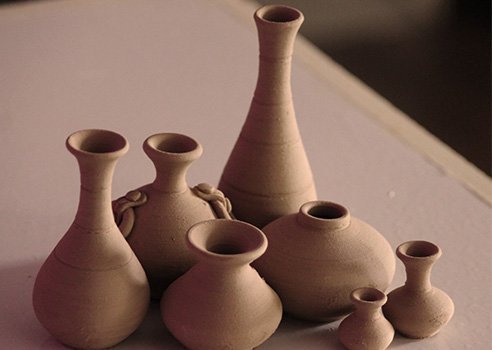Reading time: Just over 1 minute
Increase your vocabulary and you’ll make your writing much more precise. That’s why I provide a word of the week. Today’s word: bisque.
When I read the 1965 novel, Stoner, by John Williams, I disagreed with the characterization of it as the “perfect novel.” (This claim was made by Morris Morris Dickstein in the The New York Times Book Review and you can see his comment, and those of other reviewers, here.)
Still, I liked the book.
Set around the turn of the last century, it’s about Missouri farming family and it tells the story of their son, who becomes a university professor. The writing style is clean and simple and I hadn’t expected to discover a word I needed to look up.
The word was bisque. Here is the sentence in which it was used:
When she came upon a letter she had received as a child, she read it through from beginning to end as if for the first time; when she came upon a forgotten doll, she smiled at it and caressed the painted bisque of its cheek as if she were a child again who had received a gift.
On reflection, I didn’t need to use the dictionary at all. My late mother had been a potter and I knew that bisque meant pottery that had not yet been glazed. Still, I was curious about the etymology of the word. Was it French, perhaps?
Indeed it was. But, of course, there are two meanings for this noun. One is a soup (yes, of course! How had I forgotten that?) And the other is unglazed porcelain. This latter use dates to the early 19th century and comes from the Old French word bescuit, meaning something that has been “twice cooked.” I still don’t understand how unglazed pottery would earn this term (after all, it’s been baked in a kiln only once.)
If there are any word experts who can enlighten us, please comment below.


